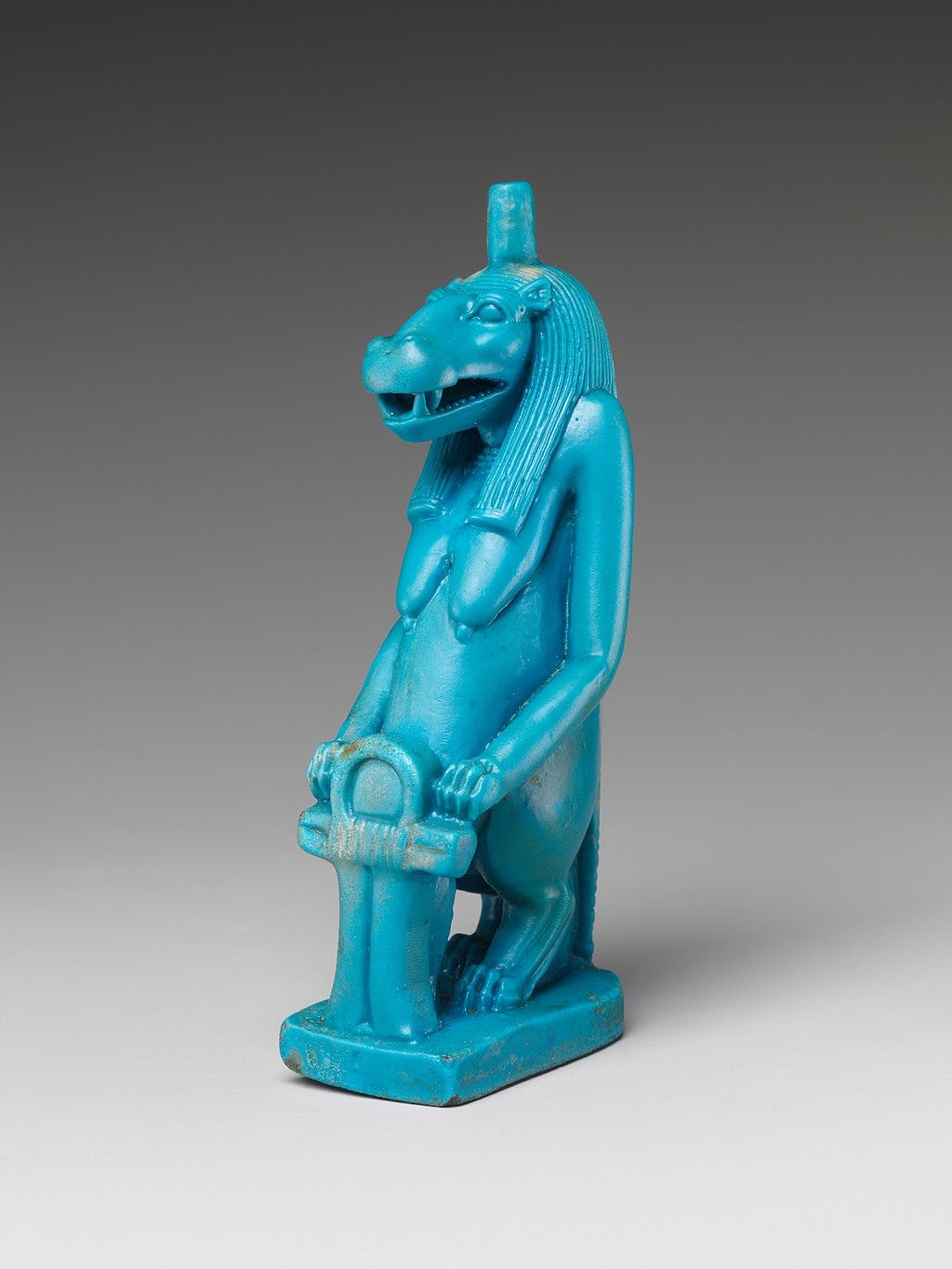Podcast Episode Details
Back to Podcast Episodes
Pregnancy and Childbirth in Ancient Egypt
Content Warning: Adult themes of sex and sexuality; death and trauma
In this podcast episode, we take a deep dive into pregnancy and giving birth in ancient Egypt. How were fertility issues dealt with? How was conception conceptualized? What was the childbirth process like? What role did magical rituals and belief in the gods play? What role did midwives, doctors, wet nurses, and others play in the process? And what can we gain from the experiences of these ancient people today? We ultimately come to understand that ancient Egyptian birth was a private matter that took place in the home, that the baby and mother received the support of intimate and extended family, that the new mother was welcomed back into society with celebrations of her beauty and fecundity, a rite of passage in which community was integral. Indeed, all of this is exactly what pregnant individuals and new parents are missing and seeking out in 2025.
We might assume that it is better to be pregnant now than in the ancient world. And in some ways it is— antibiotics, anesthesia, and sonograms save lives everyday. But we also know healthcare access is not equal across race and socio-economic status, governments are defunding care facilities, and a woman’s right to choose are all under threat. To make matters worse, as of a 2023 JAMA study, U.S. pregnancy-related deaths are on a steep uptake since 1999, especially amongst Indigenous and Black communities. The defunding of pregnancy and childbirth-related services, like Planned Parenthood, is one contributing factor. Given that cuts to abortion access are meant to push women back into traditional, shut-in, patriarchal roles, please don’t expect a glorification of the ancient world here. But we can’t laud the modern situation either. Let’s just say that we can learn useful lessons from both sides of our human selves. It’s complicated.
All of our current medical possibilities have created their own unintended overmedicalized consequences that no one in the ancient world had to suffer. Today’s drug-induced births, often chosen for the convenience of medical staff, create contractions that are ten times more painful than normal contractions. The high number of chemically induced births demands that modern American mothers labor for hours under epidural spinal pain blocking, accompanied by heavy opioids. The inability to feel anything during the birth process takes agency away from the mother entirely. She cannot move; she pushes from her back. No squatting and birth bricks for her. No gravity to assist the descent of the baby in the birth canal. Instead, very long labor can result in traumatized mothers with ripped tissue, babies squeezed and pulled out of the birth canal.
Many modern births result in overmedicalized interventions, thus the high rate of cesarean sections, which are 5x more likely to cause complications than vaginal births. The COVID-19 pandemic hit pregnant and post-childbirth individuals particularly hard. Even celebrities— people we would assume would have the best medical treatment available— have had near-death experiences (Read about Serena Williams’ ordeal).
In many ways, the modern (American) birth process is a system perfected to create trauma and loneliness. I think if we had the choice presented to us with clarity, most of us would want t
Published on 1 month, 2 weeks ago